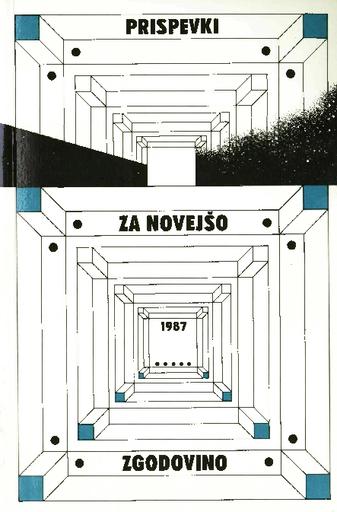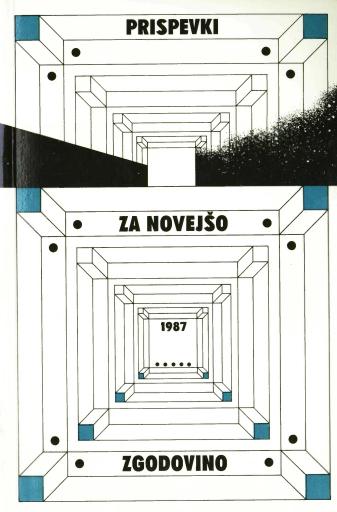
/
Periodicals
/
Prispevki za novejšo zgodovino
The Austrian Capital in the Industry of the Kingdom of Yugoslavia

Author(s):France Kresal
Co-author(s):Jasna Fischer (odg. ur.)
Leto:1987
Publisher(s):Inštitut za zgodovino delavskega gibanja, Ljubljana
Language(s):slovenščina
Type(s) of material:text
Keywords:Kraljevina Jugoslavija, tuji kapital, avstrijski kapital, industrija, proizvodnja, gospodarska zgodovina
Rights:

This work by France Kresal is licensed under Creative Commons Attribution-NonCommercial-NoDerivs 4.0 International
Files (1)

Name:Prispevki_za_novejso_zgodovino_1987.pdf
Size:14.68MB
Format:application/pdf
Permanent link:https://hdl.handle.net/11686/file9
Description
The Austrian capital in Yugoslavia is interesting from two standpoints: as capital invested in the existing industry and as capital invested anew in the period 1919-1938. Most of the foreign capital in Yugoslavia was French and British and only a small part of it Austrian, Czech and Hungarian. The Austrian capital and its leading structures thus had no negative effects on the development of industry in Yugoslavia, as far as its organization and technical production are concerned.
Metadata (12)
- identifierhttps://hdl.handle.net/11686/2443
- title
- Avstrijski kapital v industriji stare Jugoslavije
- The Austrian Capital in the Industry of the Kingdom of Yugoslavia
- creator
- France Kresal
- contributor
- Jasna Fischer (odg. ur.)
- subject
- Kraljevina Jugoslavija
- tuji kapital
- avstrijski kapital
- industrija
- proizvodnja
- gospodarska zgodovina
- description
- The Austrian capital in Yugoslavia is interesting from two standpoints: as capital invested in the existing industry and as capital invested anew in the period 1919-1938. Most of the foreign capital in Yugoslavia was French and British and only a small part of it Austrian, Czech and Hungarian. The Austrian capital and its leading structures thus had no negative effects on the development of industry in Yugoslavia, as far as its organization and technical production are concerned.
- Značaj avstrijskega kapitala v Jugoslaviji je zanimiv z dveh vidikov: kot kapital, investiran v obstoječo industrijo in kot kapital, ki je bil investiran na novo v času 1919-38. Od tujega kapitala odpade večina na francoskega in angleškega, manjši del na avstrijskega, češkega in madžarskega. Avstrijski kapital in vodilne strukture v njem niso imele negativnih posledic na razvoj industrije v Jugoslaviji gledano s stališča organizacije in tehnične proizvodnje.
- publisher
- Inštitut za zgodovino delavskega gibanja
- date
- 1987
- type
- besedilo
- language
- Slovenščina
- isPartOf
- rights
- license: ccByNcNd
Citirano v (2)
| Tipologija | Avtor(ji) | Naslov | Kraj | Založba | Leto |
|---|---|---|---|---|---|
| 1.01 Izvirni znanstveni članek | Ratej, Mateja | Osmrtnica Lotharja Mühleisna v zapuščini metavskega viničarja Josefa Hammerja | Celje | Zgodovinsko društvo | 2017 |
| 1.01 Izvirni znanstveni članek | Cerar, Luka | »Čez noč je postal Gassner Anglež, Glanzmann pa švicarski Italijan.« Sekvestracija Bombažne predilnice in tkalnice v Tržiču leta 1919 | Ljubljana | Zveza zgodovinskih društev Slovenije | 2021 |